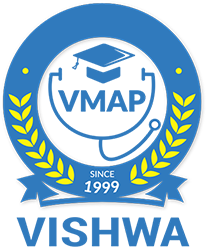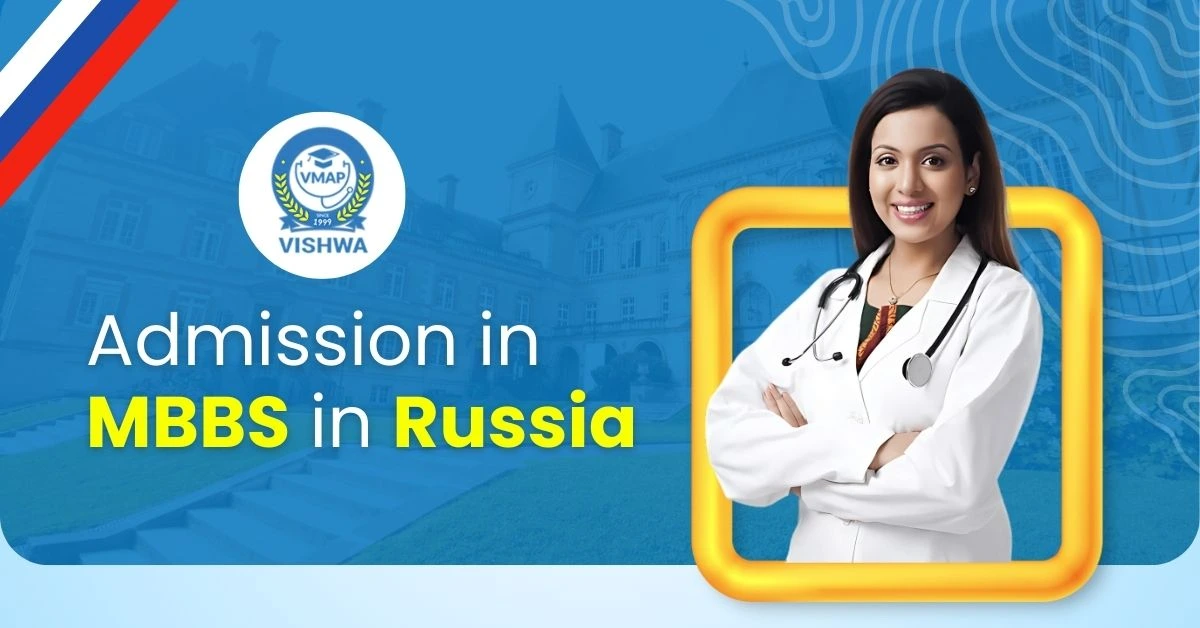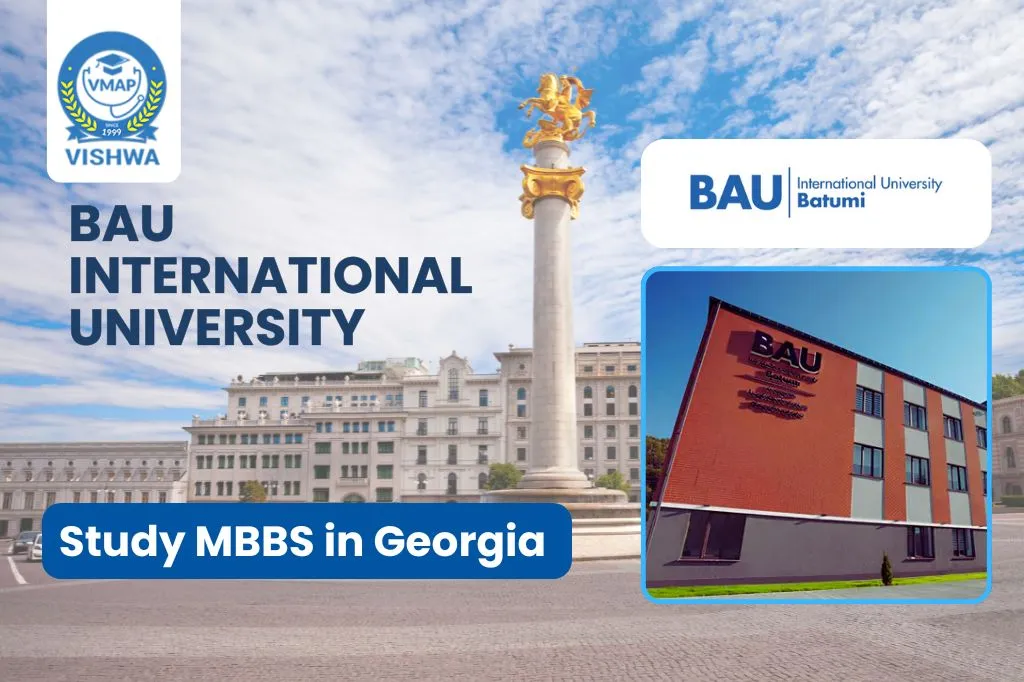Cardiology courses after 12th to begin a career focused on heart health and patient care. At Vishwa Medical Admission Point, we’ve spent over 25+ years helping students like you find the right path to a medical career, whether it’s becoming a cardiologist or a heart care specialist.
This page provides a comprehensive overview of cardiology courses after 12th—eligibility, duration, options without NEET, and more. Our goal is to make your journey clear and stress-free, whether you’re aiming for MBBS in India or exploring affordable programs abroad.
What is Cardiology?
Cardiology is all about understanding and treating the heart and blood vessels. To begin that journey, most students start with a basic medical degree such as MBBS. There are a few cardiology courses after 12th you can choose from, like MBBS, BDS, or even a B.Sc in something like Cardiac Care Technology. These programs set you up nicely for more advanced heart-focused training later on. For instance, once you’ve got your MBBS, you can do a 3-year MD in Cardiology to become a heart doctor and start making a difference.
Take Priya, a student we helped from Delhi. She started with MBBS at a top Indian college and later pursued cardiology. At Vishwa, we guide students to pick the right starting point, like a cardio course after 12th, based on their budget and goals. Whether you study in India or abroad, we’re here to simplify the process.
Who Can Enroll in Cardiology Courses?
To start cardiology courses after 12th, you need to meet a few requirements. For most programs, like MBBS, here’s what’s needed:
- Finish Class 12 with Physics, Chemistry, and Biology (PCB) and score at least 50% marks. Some top colleges ask for 60% or more.
- Pass the NEET-UG exam for MBBS or BDS in India.
- Be at least 17 years old by December 31 of the year you apply.
If NEET isn’t your path, don’t worry. Cardiology courses after 12th without NEET, like B.Sc Cardiac Care Technology or a Diploma in Cardiovascular Technology, rely on your Class 12 marks or state-level exams. For instance, we helped Arjun from Mumbai, who didn’t clear NEET, join a B.Sc Cardiac Care program in Bangalore.
Duration of Cardiology Courses
The cardiology course duration varies depending on what you choose. Here’s a quick look:
- MBBS: 5.5 years (4.5 years of classes plus a 1-year internship). After that, a 3-year MD in Cardiology makes you a full-fledged cardiologist.
- B.Sc Cardiac Care Technology: 3–4 years, teaching you to assist doctors with heart tests like ECGs.
- Diploma in Cardiovascular Technology: 2 years, a faster way to start working in heart care.
For example, Riya, a student we guided from Bangalore, picked B.Sc Cardiac Care because it was affordable and got her into the workforce quicker. By 2030, jobs for cardiac care technicians are expected to grow by 11% worldwide due to more heart-related health issues.
Cardiology Courses Without NEET
Yes, you can pursue cardiology courses after 12th without NEET if becoming a cardiologist isn’t your immediate goal. Programs like B.Sc Cardiac Care Technology or Diploma in Cardiovascular Technology train you to support cardiologists by running heart monitors or assisting in procedures. These courses often don’t require NEET and use your 12th-grade scores for admission.
Take Meera from Jaipur, one of our students. She chose a Diploma in Cardiovascular Technology after 12th and now works in a hospital lab. She’s even planning to study further. These courses help you start your career in heart care quickly, with opportunities to pursue higher studies later.
How to Choose MBBS Colleges for Indian Students
Finding the right college for MBBS or Cardiology is an important factor in shaping your future. Here are some tips to guide you:
- Check Recognition: Make sure the college is approved by the National Medical Commission (NMC) for Indian degrees or listed by the World Health Organization (WHO).
- Look at Faculty and Facilities: Choose colleges with experienced teachers and modern hospitals for hands-on training.
- Consider Costs: MBBS in Indian private colleges can cost ₹50 lakh to ₹1.5 crore. Abroad, places like Russia or Georgia charge ₹15–25 lakh for the full course.
- Career Support: Pick colleges that help with postgraduate studies or exams like the FMGE for foreign graduates.
At Vishwa, we make this easier. For example, we helped a Chennai student get a scholarship at Tver State Medical University in Russia, saving his family ₹5 lakh. By 2030, over 50 Russian universities will likely offer MBBS in English, making them a solid choice for Indian students.
What Jobs Can You Get After Cardiology Courses?
Cardiology courses after 12th lead to exciting careers. After MBBS and an MD in Cardiology, you can become a cardiologist, earning ₹8–20 lakh a year in India. Courses like B.Sc Cardiac Care lead to roles like cardiac technologist, with salaries of ₹3–7 lakh. By 2030, healthcare jobs, including cardiologists and technicians, are expected to grow by 12% globally due to more heart disease cases and an aging population.
One of our students from Delhi, a 2023 graduate, passed the FMGE on her first try and now works as a junior cardiologist. Whether you study in India or abroad, Vishwa offers FMGE coaching and career advice to help you succeed.
Why Trust Vishwa Medical Admission Point?
At Vishwa Medical Admission Point, we’ve been guiding students for over 25 years with honest, tailored advice on cardiology courses after 12th. Here’s what we offer:
- Personalized Guidance: We look at your marks, budget, and dreams to suggest the best courses and colleges.
- Full Support: From filling out applications to getting visas, we handle the details so you can focus on your studies.
- Proven Expertise: Our partnerships with NMC-approved universities and decades of experience.
For example, we helped a Hyderabad student choose a B.Sc Cardiac Care program that fit her passion for heart diagnostics. She’s now working in a clinic and loving it.
Final Thoughts
Starting cardiology courses after 12th is a big step toward a meaningful career in healthcare. Whether you aim to be a cardiologist through MBBS or start with a shorter course like B.Sc Cardiac Care, Vishwa Medical Admission Point is here to help. With healthcare jobs expected to grow by 20% by 2030, now’s the time to act. Reach out to us for free counseling and take your first step toward a heart-focused future.
Also Read
Lab technician course after 12th
Paramedical courses after 12th
Clinical research courses after 12th
Dermatology courses after 12th









